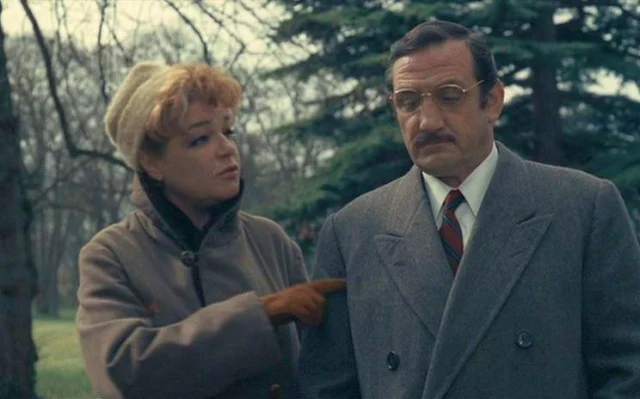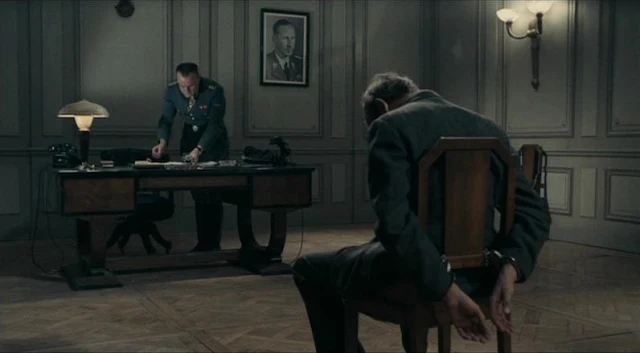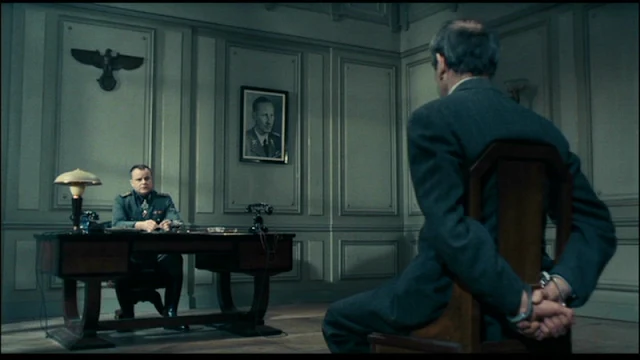Cast: Lino Ventura, Paul Meurisse, Jean-Pierre Cassel, Simone Signoret, Claude Mann, Paul Crauchet, Christian Barbier, Serge Reggiani, André Dewavrin, Alain Dekok, Alain Mottet, Alain Libolt, Jean-Marie Robain. Screenplay: Jean-Pierre Melville, based on a novel by Joseph Kessel. Cinematography: Pierre Lhomme, Walter Wottitz. Production design: Théobald Meurisse. Film editing: Françoise Bonnot. Music: Éric Demarsan.
The stoic restraint that pervades Army of Shadows extends to the images provided by the credited cinematographers, Pierre Lhomme and Walter Wottitz. For a long time I wasn't really sure whether the film was made in color or black and white, so desaturated are the images. Occasionally the color of a garment or Simone Signoret's hair or the blue of the Mediterranean in the background will catch the eye, but for the most part the film takes place in a world drained of anything suggestive of vivid life. Death is presented as something inevitable, as something that has to be gone through, so futile has resistance to the occupation of France by the Nazis become. Faced with executing a traitor, the Resistance operatives feel reluctance and guilt but also proceed practically: The sound of a gun would attract attention; there are no usable knives at hand; so the solution is to strangle their former comrade with a kitchen towel, and the garroting proceeds with as little drama as possible. This is a film about endurance rather than action, about moral choices made with deliberation and without fuss. Sometimes what action there is feels contrived: The rescue of Gerbier from prison at the moment of his execution depends on sheer luck and coincidence and not on skillful timing and precise intelligence. But dramatic probability is not the point, instead it's the feeling that all of the lives depicted in the film are poised on a razor's edge.















